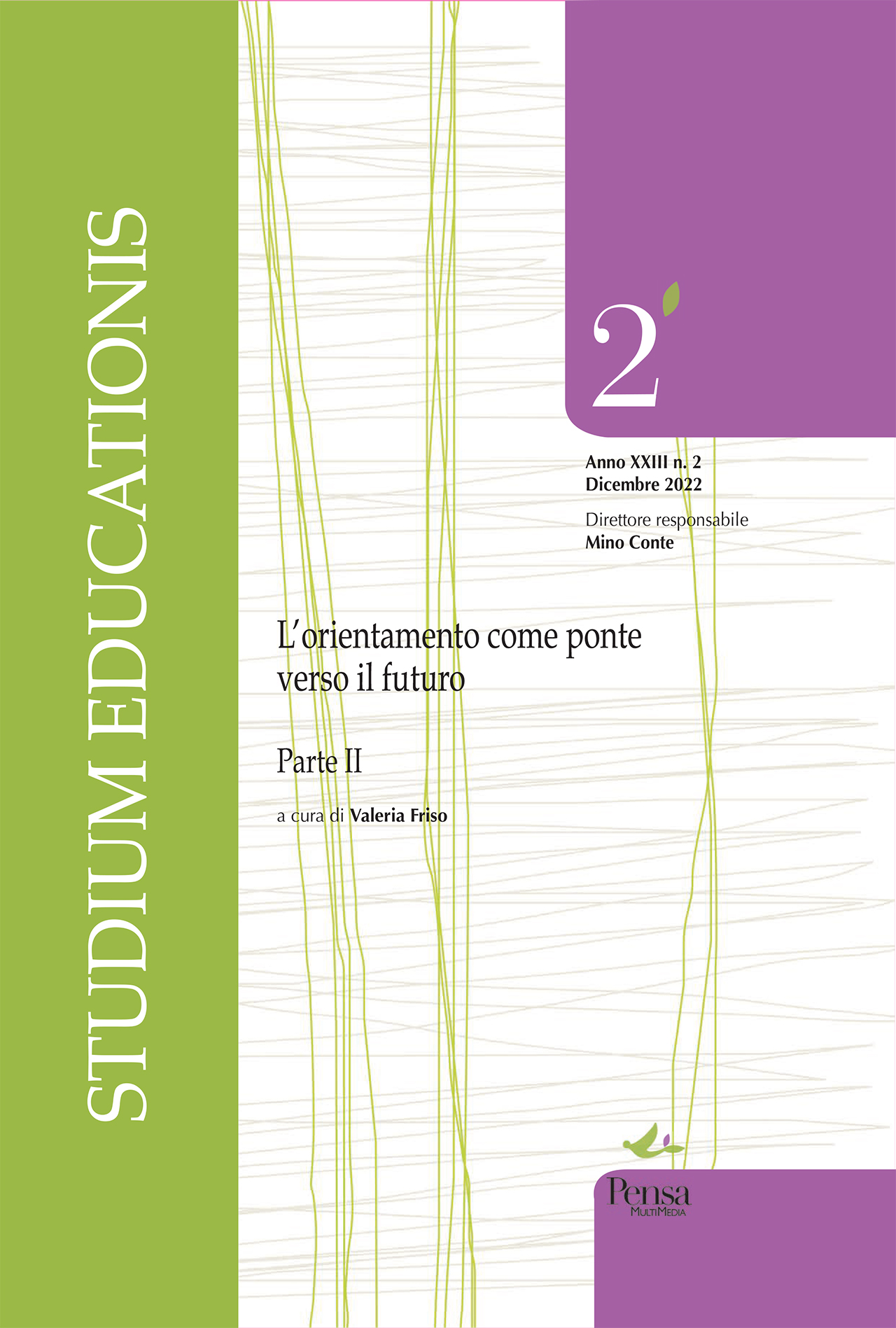Philosophy for Children: the practice of (dis)orientation in community of inquiry
DOI:
https://doi.org/10.7346/SE-022022-16Abstract
In un mondo post-pandemico, cresce la necessità di orientare le nuove generazioni verso il ben-essere e il ben-diventare. All’interno del quadro dell’orientamento permanente (UE, 2000) è fondamentale pensare all’orientamento educativo non solo come politiche e strategie istituzionali per guidare gli studenti nel mercato professionale e del lavoro, ma per educare ad affrontare i problemi e le domande presenti nel corso della vita. Philosophy for Children si propone come un’esperienza scolastica guidata di dialogo di indagine, introducendo un modo alternativo per concepire l’orientamento degli studenti come un impegno comunitario. Il focus è esplorativo e mira a evidenziare come il filosofare sia una
componente chiave del processo che alimenta l’orientamento. La «comunità di indagine» è il «come» e il «dove» didattico della condivisione di opportunità di praticare il (dis)orientamento, come esperienza di pensiero distribuito di essere «persi nella (in)decisione», meravigliandosi nell’incertezza e vagando per possibilità, vincoli fondamentali per disegnare nuove mappe.


